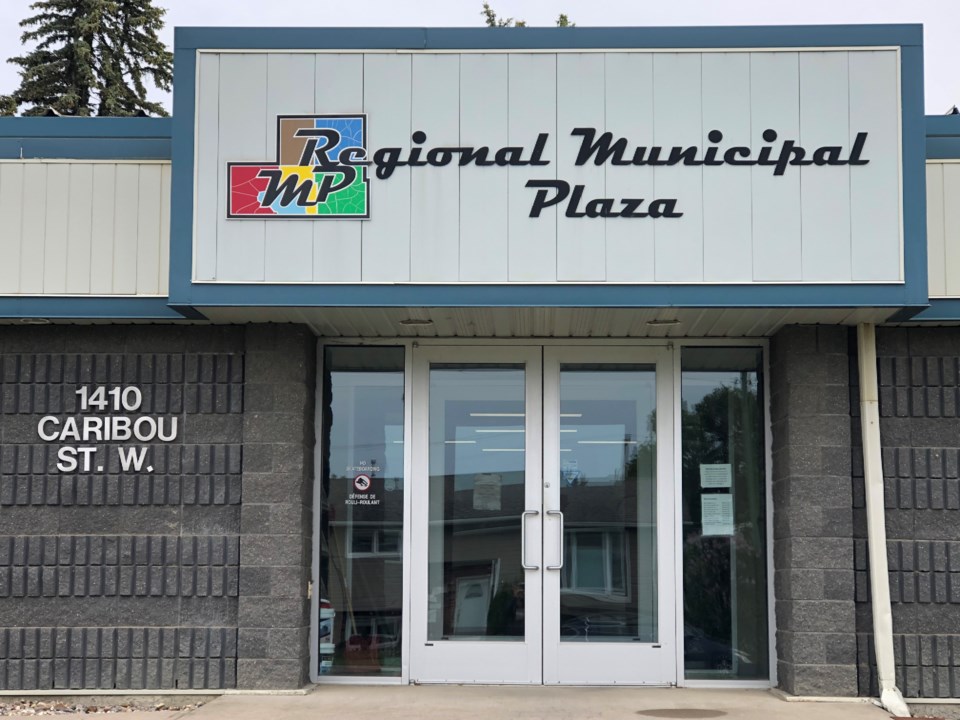Rural residents’ opposition to the proposed City of Moose Jaw landfill project has proven effective, as the Rural Municipality of Moose Jaw has rejected the city’s discretionary use application (DUA).
The rural council met on June 18 and voted 4-1 against a motion to approve city hall’s request — it had recently submitted an updated application with more information — to build a solid waste management venue north of the city on prime agriculture land.
Opposed were councillors Shae Nichols (Division 1), Scott Durant (Division 4), Dave Delahey (Division 5) and Kim Dalgarno (Division 6), while in favour was Coun. Bruce Richards (Division 3).
Coun. Rene Steinhauer (Division 2) recused herself from the vote, while Reeve Ron Brumwell abstained.
Richards said he voted in favour because most of his ratepayers approved of the project, although he noted that more residents in the RM’s north would be affected than in the south.
The main reasons the rural council voted against the discretionary use application were because the proposed project is too close to the city, devalues rural properties, has a negative effect on ratepayers, makes using Highway 2 unsafe, contradicts a study by consultant TetraTech and makes it difficult for future area development.
Administrator Mike Wirges said that since the initial motion rejected the discretionary use application, city hall cannot appeal it to a higher level.
Based on advice from the province, to ensure clarity, the rural council also voted on a separate motion to deny the request; that vote was 5-0.
Denial ‘not done lightly’
City manager Maryse Carmichael and operations director Bevan Harlton entered the meeting room after the vote, with Brumwell telling them that council didn’t need any more input and didn’t have any outstanding concerns that needed answering.
He also noted that several rural residents — including Wilda Soper, her son, Cal, and Gord Knox — had attended earlier as a delegation and were “adamant” against the project.
“I know it’s not the decision you were looking for, but as far as the RM, that’s the direction they want to go … ,” Brumwell added. “Whatever direction they (city council) decide to proceed is up to them. It’s been a lengthy process, and that was part of today’s decision, that we don’t see it changing if we waited another month.”
Carmichael thanked the reeve for the information and the regular communication during the past few months, while Harlton said the denial allowed city hall to figure out its next steps.
“It (the rejection vote) wasn’t done lightly, but that’s the way it is,” said Brumwell. “It’s a democracy.”
Potential conditions
During the meeting, the RM council discussed the possible benefits of approving the project application, with one positive reason –°¿∂ ”∆µ the organization could dictate certain conditions that the city had to follow with the site.
Some conditions the city would have had to follow included: requiring two layers of anti-garbage fencing, having a maximum fence height of five metres (15 feet), picking up litter on lands within 3.2 kilometres (two miles), using tarps to cover the site, paying for an all-weather access road, having a drainage plan, having only one entrance from Highway 2, creating a berm or buffer and reviewing the conditions every three years.
Delegation presentation
During the delegation’s presentation, Knox told council that the rural group’s position was “a hard no” against the project. Furthermore, he thought it was “a pipe dream” that city hall would honestly work with the RM.
Meanwhile, Mrs. Soper raised the issue of the city either expropriating or annexing the land based on the RM’s decision. She thought if the city annexed the land, it could then move its public works yards out there.
“390 acres for a landfill is way too much land. It’s obvious that something else is going out there,” agreed Cal, noting that Regina’s landfill is roughly 190 acres.
A councillor said that if the RM approved the application, it could set out conditions that the city would have to follow. However, voting no meant the city could annex the land and either move it into city limits or expand city limits. Moreover, the city would control the venue and do whatever it wanted and the RM would have little input into its operations.
The DUA is for the landfill only, so if the city wanted to move its public works operations there, it would have to return with another development application, said Brumwell.
Mrs. Soper encouraged the RM council to “protect this (agricultural) way of life” because the city didn’t really “care about us or you.”
A councillor pointed out that the RM would no longer be able to help the rural group in its fight against the landfill project if it denied the application and wondered if the ratepayers were OK with that; Knox and Soper said they accepted that fact.




